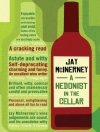For the sake of salt, Rome created a system of remuneration (from which we get the word ‘salary’), nomads domesticated the camel, the Low Countries revolted against their Spanish oppressors, and Gandhi marched against the tyranny of the British. Through the ages, salt has conferred status, preserved foods, and mingled in the blood, sweat, and tears of humanity. Today, chefs of haute cuisine covet it in its most exotic forms—underground salt deposits, Hawaiian black lava salt, glittery African crystals, and pink Peruvian salt from the sea carried in bricks on the backs of llamas.
From proverbs to technical arguments, from anecdotes to examples of folklore, chemist and philosopher Pierre Laszlo takes us through the kingdom of ‘white gold.’ With ‘enthusiasm and freshness’ (Le Monde) he mixes literary analysis, history, anthropology, biology, physics, economics, art history, political science, chemistry, ethnology, and linguistics to create a full body of knowledge about the everyday substance that rocked the world and brings zest to the ordinary. Laszlo explains the history behind Morton Salt’s slogan ‘When it rains, it pours!’ and looks into the plight of the salt miner, as well as spectroscopy and nuclear magnetic resonance. Salt is a tour de force about a chemical compound that is one of the very foundations of civilization.
İçerik tablosu
Foreword, by Albert Sonnenfeld, series editor
The Proverb of Salt on Lettuce
Osmosis and Salt Curing
Salting Herring
The Cossacks of the Don
The Proverb of Friendship Over Salt
Food Preservation
Flavor Concentrates
Saucing
Saumandises
Cookery
The Proverb on Success in Love
The Salting Tub
From the Salty to the Sweet: Saint Nicholas
Settled and Nomadic Peoples
On Camelback
Mind of Salt
Saint-John Perse
West Salt Story, 1650-1850
Salt Routes
The Proverb of the Tardy Salt
Alpine Salt
Lick
Like the Dawn
Technical Vocabularies
The Proverb of the Bland Egg
Salt Domes
Mining
The Proverb of Rejecting the Bland
Solar-Evaporation Saltworks
The Beginning of ‘Çatrix’
Onondaga, Success, and Decay
Desalination of Seawater
Technology and Social Structure
National Sovereignty
The Proverb of the Marsh Purchase
Venice
The Seeds of Modern Times
The Dutch Revolt
The Gabelle
An Admonishment to a King
Taxation
A Mine Near Krakow
The Warrior’s Saying
Citadel of Salt
The Proverb of the Cardinal Points
Gandhi
The Salinity of the Ocean
A Marine Origin?
What Osmosis Consists Of
The Two Kinds of Organisms
Fish
Thirst and Lack of Salt
The Nerve Impulse
Extreme Halophiles
A Frenchman’s Look at the Great Salt Lake
Alchemy
Michigan Salt
Raw Material for an Industry
The Age of Vinyl
Salt and Cold
Salt and Water
The Wine Stain
Slippages
Water Softening
Salt Glazing
Invention of Spectroscopy
Variation on the Same Old Tune
The Saying About the Red Herring
The Saugrenu
Punning in the Rain
From Salt to Salts
Ritual and Liturgical Uses of Salt in the Bible
Salt and Dance
Aztec Bacchus
The Proverb of the Aspersion
Saltcellars
Benvenuto Cellini
Decorative Arts: From Colbert to Queyras
The Saying on the Pinch of Salt
Stendhalian Crystallization
Ramakrishna’s Emblem
Conclusion: Ethics and Politics
Popularization
The Representation of History
Afterword: The Union of Earth and Sea
1. Salt-Cured Foods
2. Nomads
3. Harvesting
4. Abuse of Power
5. Biology
6. Other Science Insights
7. Myths
Yazar hakkında
Pierre Laszlo is an emeritus professor of chemistry at the University of Liège, Belgium, and the École polytechnique near Paris, France. Of his many published works six have been translated into English, including
Organic Reactions: Logic and Simplicity and Organic Chemistry Using Clays.












